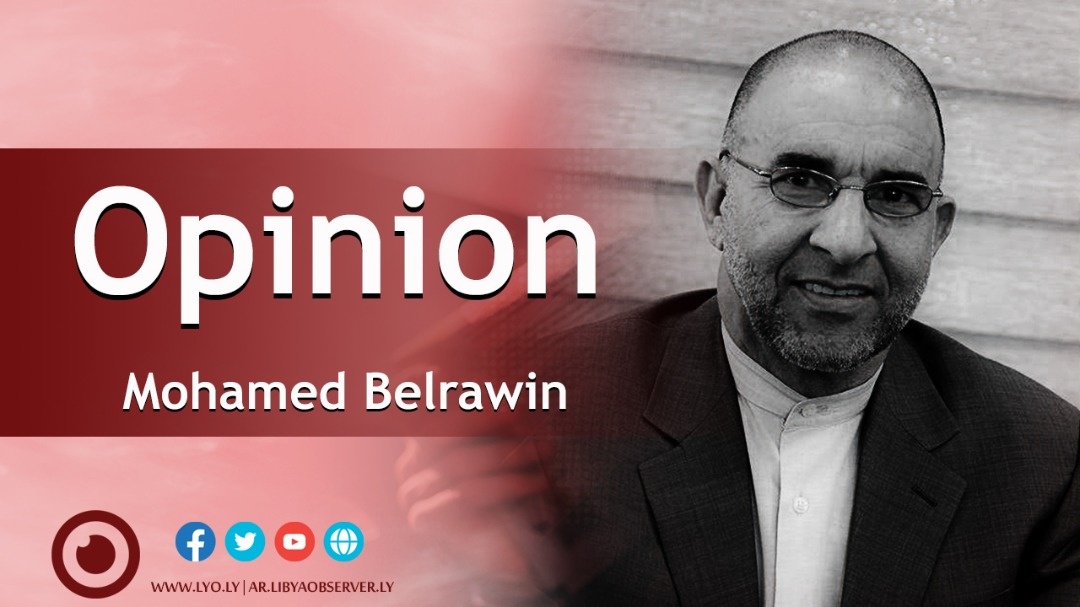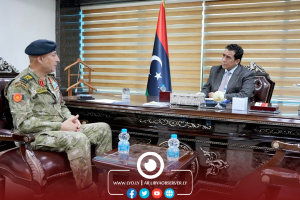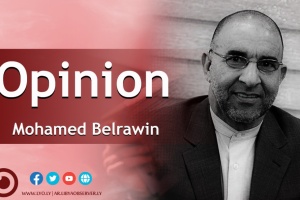By Mohamed Belrawin, Professor of Political Science and member of the Constituent Assembly for Drafting the Constitution
Democracy in Libya and the three missing mechanisms

The experience of the past ten years has taught us that Libyan politicians have no covenant, do not respect their covenants, and do not believe in the principles they advocate unless they serve their own personal interests. It taught us that the legal terminology does not mean anything to them and they consider it as bearing multiple connotations for example: the term “ the nearest time” does not mean to them “as soon as possible”, and the term “consensus” does not mean to them “that no one objects.” It also taught us that whoever practices politics today (save few) do not believe in the rule of “political appeal.” Rather, s/he believes that the higher one ascends, the more adores power and clings to it, refusing to descend or handover.
It taught us that many of the necessary electoral mechanisms to participate in decision-making are missing. It taught us that “trust” alone is not enough, and that its harm is more than its reward, and the principle that must be adopted is: “Trust but test”.
It also taught us that the participation of citizens - in the next stage - should not be limited to just casting a vote to choose their representatives in parliament, but rather it should include other mechanisms for decision-making. In other words, there should be (in addition to the election mechanism) other mechanisms, perhaps the most important of which are the following:
1. The initiative.
2. Referendum.
3. Recall
First: the initiative
A tool of direct democracy (also known as popular initiative or citizens' initiative), a means by which signatures can be collected from a number of voters (specified by law) to force parliament to pass, amend or repeal legislation. In other words, it is a means of participating in the process of making decisions and laws or objecting to them, for this to happen, it must:
1. The proponents of the proposal collect sufficient signatures,
2. Hold a referendum on the proposal,
3. Make the result of the vote binding on all.
Second: Referendum
It is a voting process in which voters in a country are asked to express their opinion or make a decision on a specific issue. It is a similar tool for elections, except that citizens go on polling day to cast their votes on the ballot paper with "yes" or "no."
The referendum is considered successful if it is approved by the prescribed majority as stipulated by law. There are many types of referendum, perhaps the most important of which are:
1. A popular referendum - in which voters are allowed to cancel existing legislation or refer an act of parliament to vote on it before it becomes law.
2. A legislative referendum - allowing Parliament to refer a legislative proposal to voters for approval or rejection.
Third: Recall
A procedure by which voters remove an elected official from office before the expiration of his term of office. This is done by the following:
1. The voters recall their elected official (in their constituencies) by collecting a certain number of signatures (determined by law) within a certain period, provided that they were among the votes that participated in the last elections for this position
2. If the voters succeed in gathering the required number, the referendum will be held.
3. If the voters agree to recall the official, the constituency has three options for appointing a replacement for him:
a. Refer to the list of candidates in the previous elections and choose the candidate who got the second rank,
b. Call for special elections to choose the replacement, or
c. The officials in the constituency appoint the replacement. In this case the following must be emphasized:
1. All positions that are popularly elected can be removed.
2. The withdrawal of confidence shall not take place before half the term for which the official was elected has passed.
3. Once a motion of no confidence has been submitted, the official has the right to resign and run in the special elections.
4. No more than one motion of no confidence can be made during the period for which the official was elected.
Conclusion
In short, the participation of voters, in the next stage, should not be limited to merely voting to choose their representatives in Parliament, but rather other tools should be available to them to participate in the political process. Perhaps the most important of these tools: initiative, referendum and recall. These are tools that give voters direct power over their own laws and officials. The initiative is a legislative procedure proposed by a number of citizens to put an issue before the people in order to vote and take a decision on it. A referendum is a popular electoral mechanism used by voters to approve or reject a proposal. The recall is a mechanism that makes every official aware that the voters who elected him/her have legal tools that enable them to have a vote of no confidence whenever they want and, in the manner, specified by the law. Therefore, it is a process through which an elected official can be removed from office. It is a mechanism that guarantees the official’s connection with his/her constituency and requires them to work for the benefit of their constituents and not for the benefit of their party or their personal interests.
Finally, it can be concluded that one of the most important reasons for the failure of the democratic process in Libya - during the past ten years - is the absence of popular electoral mechanisms that enable the citizens to monitor who represent them in the state, and reducing the democratic process to mere legislative elections, without defining the tasks of officials and setting controls for their actions.
The people should be aware that there are many electoral mechanisms to participate in decision-making, and they are important and necessary mechanisms for the practice of true democracy. Perhaps the most important of these are the three mechanisms that are mentioned above, because they are among the three most important powers reserved to enable voters to propose or cancel legislation or remove an elected official from office.
In my humble opinion, if politicians refuse to adopt these mechanisms, the inevitable result will be a continuation of what we might call "the spiral of democratic futility," which will result - God forbid – in more failure, chaos and corruption. Did the people realize the degree of this danger? Has it become necessary to include these electoral mechanisms in the next constitutional rule? I pray to Almighty Allah that this will be achieved.
Finally, my beloved ones, do not forget that this is just an opinion, I think it is sound. However, whoever comes with a better opinion than this one, we accept, and whoever comes with a different opinion, we respect.
Disclaimer: The views and opinions expressed in this article are those of the writer, and do not necessarily reflect those of the Libya Observer



